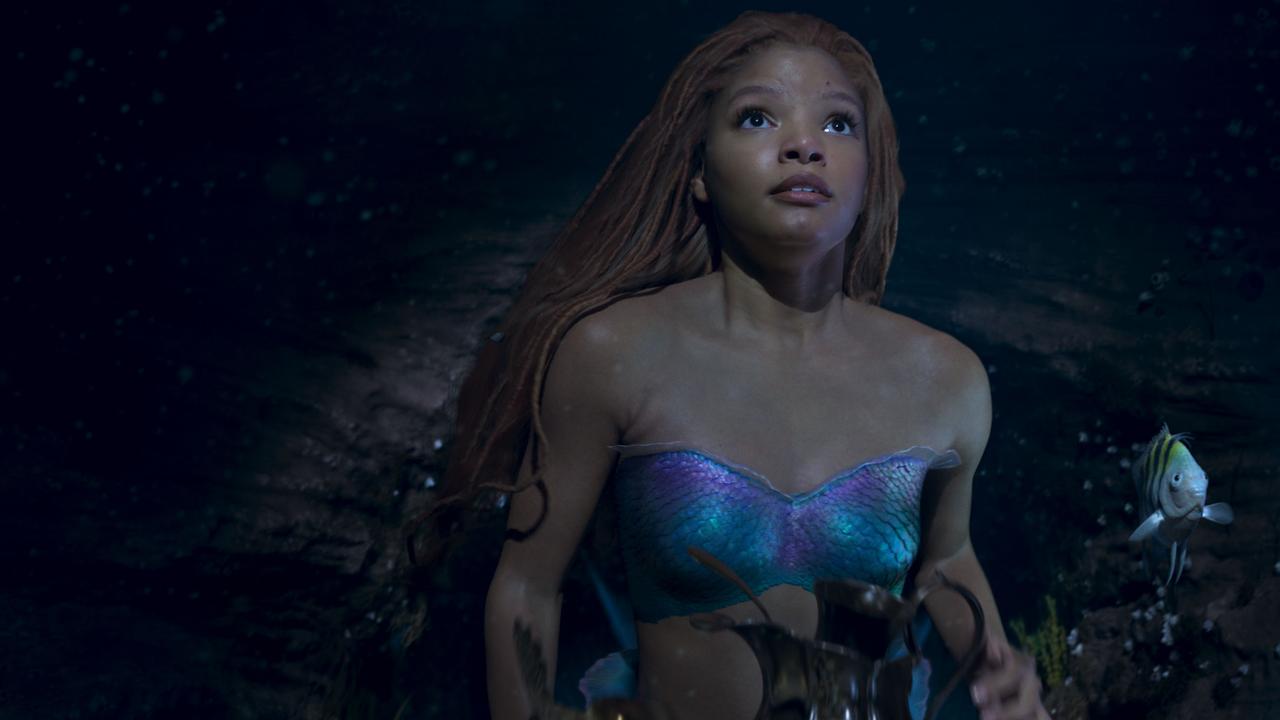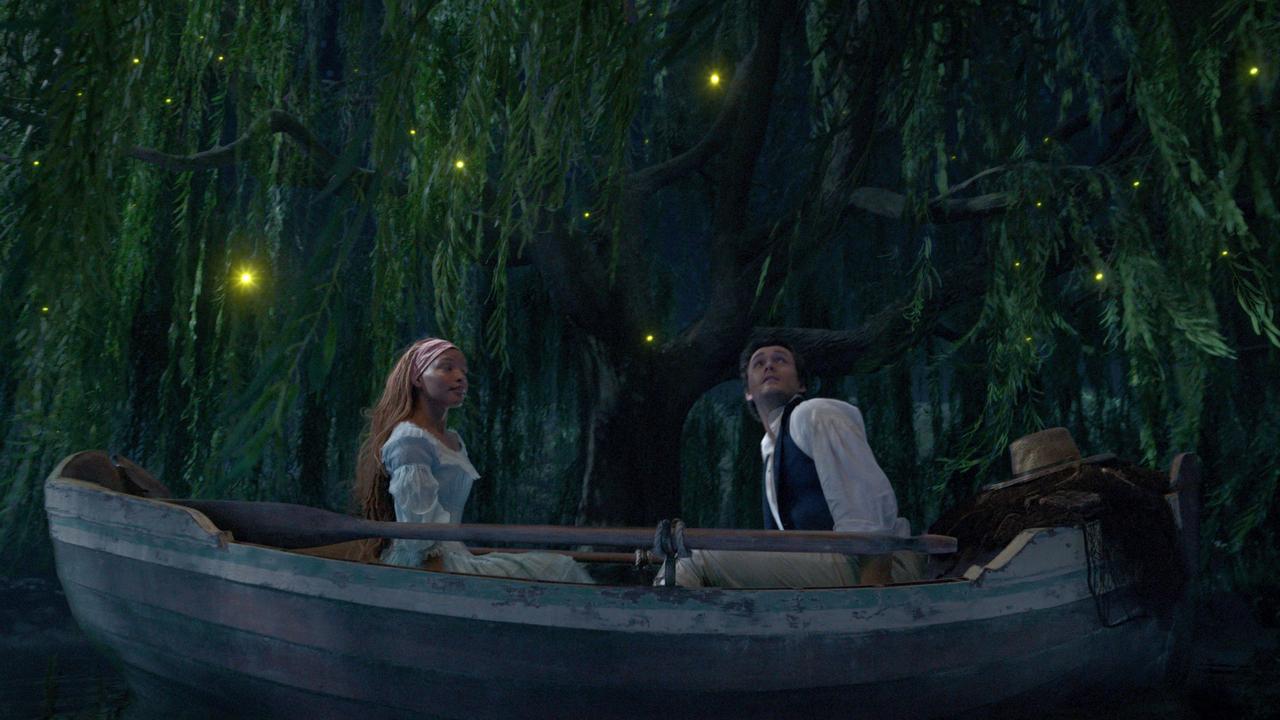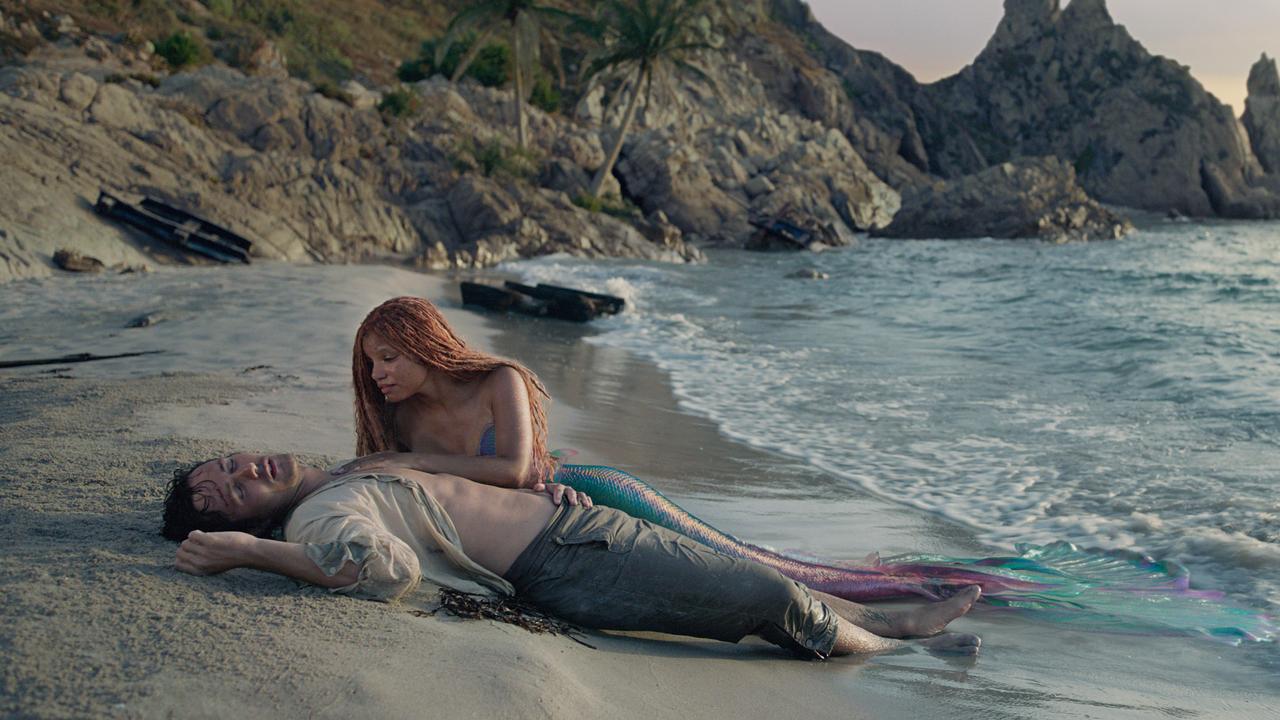Core issue with flat Little Mermaid remake
The Little Mermaid remake knows how beloved the original 1989 animation is. Perhaps it should’ve tried to forget.
The question to ask of every Disney live action remake is “why?”.
Why now? Why this one? Is there a purpose here other than the inevitable billion-dollar box office?
While the box office draw is no doubt a factor – art is commerce blah blah blah – there are good intentions behind The Little Mermaid live action remake, directed by Chicago and Mary Poppins Returns helmer Rob Marshall.
But are good intentions enough? Do you get points for earnestness?
Well, some points. The Little Mermaid is not a disaster. It even has some enjoyable beats, and a couple of terrific performances, including lead Halle Bailey with her soulful eyes and powerful and expressive voice.
But it hews too closely to the 1989 original, allowing its reverence to cage it, failing to break out and soar as its own thing. It’s as if it’s so aware of the deep devotion to the animated version, there was a timidity to how much it was willing to change.
The 1989 film did not slavishly adhere to Hans Christian Andersen’s tragic tale. It created its own story, filled it with colour and song and became unforgettable.

Here, there are definitely tweaks, including choices that work well. The character of Prince Eric (Jonah Hauer-King) has been expanded to be more than just a hot guy who needed rescuing. This iteration of Eric has the same desire to explore and discover worlds beyond his own.
He’s a better match for Ariel (Bailey) than a one-dimensional cartoon character with no development. Bailey and Hauer-King are also legitimately adorable together.
There was also the choice to have baddie Ursula (Melissa McCarthy) and King Triton (Javier Bardem) be siblings, which gives more depth and dimension to her villainy, although The Little Mermaid doesn’t follow through on the thematic possibilities.
And it has to be said that Bailey embodies Ariel with grace, vulnerability and compassion. The character’s pained yearning and desire for something more pushes through in her rendition of the film’s signature track, “Part of Your World”.
Those are its strengths, those are the elements that give The Little Mermaid substance beyond mere mimicry.

On the other side, the colour grading for all of its underwater scenes is so dark, you’d struggle to make out most details. Perhaps it’s meant to represent how Ariel feels trapped in this watery world and the dimness is her perception of it, but it just makes it visually underwhelming.
Only when Sebastian (Daveed Diggs) belts out “Under the Sea” does the beauty of that world finally light up.
As for Sebastian and Flounder (Jacob Tremblay), the commitment to photorealism means neither character emotes. Flounder, in particular, cops it badly, one time literally flopping around like dead-eyed product at a fishmonger.
Photorealism in live action is one thing, but when your story is about mermaids, you can create your own internal logic.

Thank Poseidon for Diggs, whose charismatic and dynamic voice performance as Sebastian carries the comedy beats for the movie. You cannot contain someone with as much personality and talent as Diggs, even when you encase his character in an inexpressive crab.
The updated arrangements for Alan Mencken’s original songs are reliably winsome while new ditties written by Mencken and Lin Manuel Miranda are toe-tapping but not instant classics.
All that adds up to the core problem with The Little Mermaid – it’s trying so hard to not upset fans of the original that it often feels like imitation with a couple of adjustments. And that’s about as flat as Flounder’s new-found photorealism.
Rating: 2.5/5
The Little Mermaid is in cinemas now






